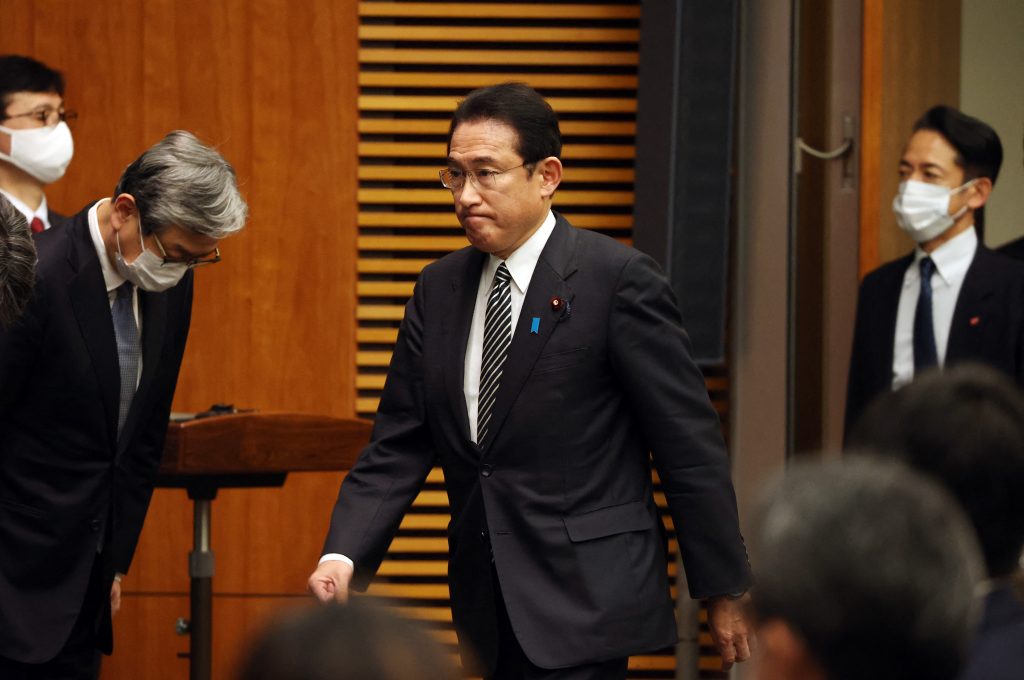
- ARAB NEWS
- 24 Apr 2024

TOKYO: Japanese Prime Minister KISHIDA Fumio aims to cement his grip on power by winning this summer’s House of Councillors election, the country’s biggest political event in 2022, while opposition parties are eager to weaken the strength of his ruling Liberal Democratic Party.
The poll for the upper chamber of parliament is “an important election given the need for political stability,” Kishida told reporters on Tuesday. “I’ll continue efforts to win the people’s understanding going into the Upper House election,” he said.
The LDP won a stable majority in October’s election for the House of Representatives, parliament’s lower chamber, soon after Kishida took office.
If the party wins the Upper House election as well, the Kishida administration will be put on a path to stability and he will be given a greater chance for re-election as LDP leader when his term ends in September 2024.
This means that Kishida will be able to stay in power at least until 2025, the year when the next national election takes place unless he calls a snap Lower House election.
To achieve the goals, Kishida aims to get important bills through parliament during its 150-day ordinary session scheduled to begin on Jan. 17. The bills include the government’s budget for fiscal 2022, which starts in April, as well as legislation to enhance economic security and to set up a new agency in charge of child welfare policy.
“The parliamentary session will not be extended” because the Upper House election is scheduled, a senior official in the Kishida administration said. In addition, the government plans to refrain from submitting bills expected to draw fierce resistance from opposition parties.
Kishida is increasingly on alert as the omicron coronavirus variant is spreading in Japan. If a sixth wave of COVID-19 infection breaks out, he will come under fire from the public. Such a situation will hamper his efforts to contain the pandemic while reviving the economy, dealing a serious blow to his administration.
The prime minister also faces opposition pressure to address the government’s overstating of key economic data, a scandal expected to be high on the agenda of parliament during the ordinary session. An independent panel investigating the matter is expected to come up with a report in mid-January.
In Okinawa Prefecture, a series of high-profile elections are taking place this year, including a mayoral election for Nago this month and a gubernatorial poll in the autumn.
Both ruling and opposition parties attach great importance to those elections as their results are expected to affect the Japanese government’s plan to relocate the U.S. Marine Corps’ Futenma air station from the Okinawa city of Ginowan to Nago. Okinawa Governor Denny Tamaki strongly opposes the plan.
Kishida also needs to pay careful attention to political maneuvering within his LDP as his faction is the second smallest among the party’s six factions. Relations with former Prime Minister Shinzo Abe, LDP Vice President Taro Aso and LDP Secretary-General Toshimitsu Motegi, each of whom leads a major faction, hold the key to stability of the Kishida administration.
The largest opposition Constitutional Democratic Party of Japan wants to weaken the LDP’s hold on power in the Upper House election. The key is how the CDP will manage its campaign collaboration with the Japanese Communist Party.
Several opposition parties, including the CDP and the JCP, unified their candidates in many constituencies in the Lower House election. But the CDP and the JCP saw their seats decrease.
New CDP leader Kenta Izumi aims to continue the party’s campaign cooperation with the JCP in the Upper House election. But he plans to review their agreement, reached for the Lower House election, that the JCP would offer limited support from outside the cabinet if the CDP wins power.
Izumi has said that it is regrettable that the agreement had sent out a “message that (the CDP and the JCP) would share power.” But the JCP has sought to keep the agreement in place.
JIJI Press